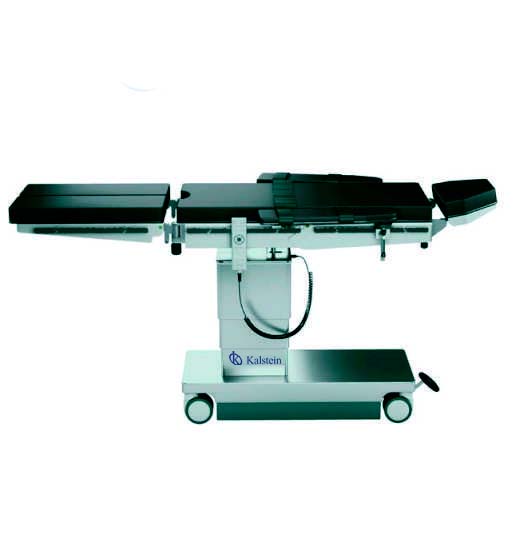The operating tables are used in all hospital units and are basically designed to provide comfort to the patient, it is composed of a column, the top and the transporter, these tables can also be used for other specialized disciplines.
The operating tables are mostly heavily attached to the floor, since the table column has a stationary system and provides staff with better space and security. It has the ability to use appropriate interface modules to communicate with different diagnostic systems, such as using MRI studies or CT scans.
In addition, there are movable tables, which can be easily slipped. The additional elements can be adapted to the operating table. This flexibility is very important as it allows the table to be adapted to the relevant patient or surgical discipline.
On the other hand, it is beneficial to use the movable tables, which can be moved and changed within the operating field. Individual segments at the top of the table can be easily removed and replaced.
Functions of the Operations Bureau
The operating tables must comply with essential requirements that allow comfort and security inside the operating room, including: the height, it must be able to adjust, therefore, work ergonomically. In addition, it should be possible to tilt the table on both sides to ensure a better overview of body cavities or to use gravity to move organs (e.g. laparoscopy).
On the other hand, the table padding is also important, as it should be soft and radiolucent, allowing the pressure to be distributed optimally, otherwise the patient may suffer pressure ulcers that may be staff fault.
Among other functions, it must be stable and comfortable, it must have a stable padding and an electrohydraulic base. It must be suitable for each type of operation, so it has a control that regulates its movements, which are:
- Height adjustment.
- Side tilt on both sides.
- Lumbar plaque regulation.
- Regulation of the legs separately and together.
- Adjustment of the head plate.
System of the Operating Tables
The operating tables, offers multiple advantages, such as the system of transfer of patients, as usually, the tables are firmly secured to the ground and with the system of wheels help to transport. Also, the central part of the table, known as a column, should be rotated to 360° and leaves enough room for the feet of the team. The top of the table is, thanks to the use of X-ray materials, almost completely radiolucent. However, the operating table, is used as a special table, in which the top of the table cannot be removed or replaced.
Accordingly, proper use of the operating table influences the position of patients, as they may suffer pressure ulcers as a result of lying incorrectly on an operating table or lying on an operating table for too long. Nurses and doctors try to prevent this from happening.
Kalstein brand Operations Table
We at Kalstein offer you surgical tables where you use a power source to make various adjustments, such as the height of the table or its inclination. We also have electric operating tables and hydraulic operating tables. They feature a radiolabeled X-ray surface and allow convenient use of the C-Arc. It uses adaptive pads that are easy to replace and clean. It is maneuverable with a central brake and has a longitudinal displacement of up to 296 mm. It belongs to the YR series models designed to meet the universal needs of surgical positioning, such as in neurology, ophthalmology, gynecology, urology, minimally invasive surgery, hand and arm surgery.
For more information we invite you to take a look: HERE

